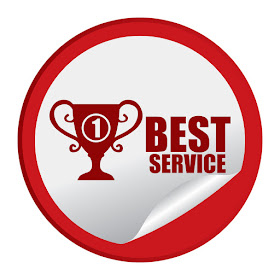Keith Harrell’s book screams, Attitude
is Everything: 10 Life-Changing Steps to
Turning Attitude into Action. Jeff Keller not to be outdone goes a step
further and shouts, Attitude is Everything:
Change your Attitude, Change your Life.
Two of the fathers of modern motivational literature, Napoleon Hill, and W.
Clement Stone, had in 1960 written what many consider the definitive treatise
on attitude when Success Through A Positive Mental Attitude was published.
Though it did not have the word attitude in its title, Dale Carnegie’s How
to Win Friends and Influence People was on positive attitude and was
first published in 1937.
The Self Help industry according to The Guardian,
is a $11bn strong in the US alone, with books in this space such as Chicken
Soup for the Soul series selling over a billion copies. The book The
Secret, by Rhonda Byrne, published in 2006, and the follow up film
starring Bob Proctor, made waves the whole world and was translated into 46
languages. The book has sold more than 19 million copies worldwide. The book is
based on one of the several tendencies in the self help industry called the law of attraction. According to this
law, what you think about, you attract. If you think positive thoughts, you
attract positive things. The reverse, according to the author, is also true.
Viola, change your thinking, change your life.
John C. Maxwell, Wayne Dyer,
Daniel G. Amen, Brian Tracy, and Marilee Adams are some of the more well known
authors that have books on how thinking positive help change our lives.
So back to our question: does attitude really
determine altitude? For the non cognoscenti, altitude refers to the level of your
monetary success, the height of your achievement glory, the stupendousness of
your wealth. A deep look at some of the most successful people on the planet,
whether in politics, sports, academia, business, and entertainment, to mention
a few, however, shows no causal relationship between attitude and success, however
defined. George Washington, Abraham Lincoln, Muhammad Ali, Arnold
Schwarzenegger, Michael Jordan, Nelson Mandela, Steve Jobs, Williams
Shakespeare, Bill Gates, Ben Carson, and Oprah Winfrey, Tony Elumelu, Aliko
Dangote, and Richard Branson, to mention a few, are some of the most successful
individuals on record. How did each and every one of these individuals achieve
stupendous success? One word: through grit.
By success, I don’t just mean financial wealth,
because Nelson Mandela, one of the most successful leaders that ever lived was
not a multi millionaire. So the one and only ingredient that separates
successful people from others is grit, by which I mean hard work, burning the
mid night oil, iron determination, standing for something, sacrifice. Malcolm
Gladwell tells us to succeed in any endeavour, you need 10,000 man hours of continued
practice, that is, about 10 years in the trenches. Ten years of learning, ten
years of focus, ten years of faith, ten years of passion, ten years of
sacrifice are what you need to reach the proverbial tipping point.
Attitude is a state of mind, of always expecting
the best no matter what the world throws on your path. But attitude (the
software) without hard work (the hard ware) will not put bread on your table,
even if you are a comedian. As a comedian, you have to continually come up with
fresh rib crackers otherwise you will become stale, and that calls for extreme
hard work. John H. Johnson of the Ebony
Magazine empire fame said “there is no defense against excellence”, and the
boxing maverick, Don King, once said, “If you set yourself on fire, the world
will come and watch you burn.” Don King
was talking about passion, zeal, determination, to go out and make something
out of yourself, not waiting for a dole out, social security or manna from
heaven. Are you ready for success? Then wake up, put on your running shoes,
fold your shirt sleeves, put your hand to the plough and never look back and
the gods of success will show up. Only hard work will see you to the Promised
Land because the maker of all the universe Himself decreed that he who does not
work does not eat. Attitude alone my friend is not enough. You need a ton of
grit to stand on.
By Paul
Uduk is the Author of “The Celebrity Speaker: Speak Like The Orators of Old,
Impact the World and Grow Rich”, and “Bridges to the Customer’s Heart”














